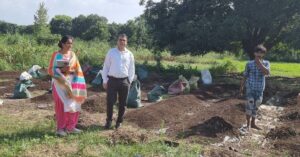Lucknow Man Learns Chemical-free Farming By Himself, Earns Lakhs From Essential Oils
Lucknow-based farmer learns how to grow lemongrass and vetiver, builds his own distiller and now sells and markets his own essential oils. And can teach you to do the same.
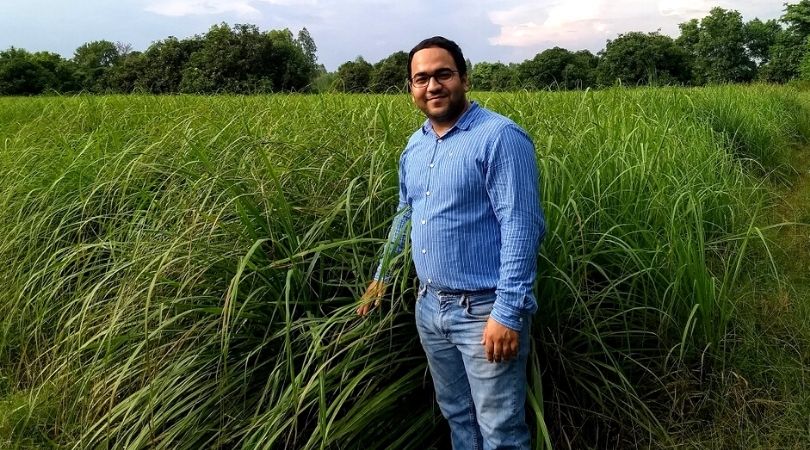
Sameer Chadha walks across his farmland, beaming at the greenery that surrounds him. He takes a deep breath and the fresh air has hints of lemongrass fragrance. This is the result of an amazing five-year journey, and he has some important lessons for those of us considering making the switch.
“With the increasing use of pesticides in commercial farming, the quality of produce and the soil is on a decline. I knew that I wanted to grow crops that were easy to maintain, were naturally pest-resistant, and that had a good market. After much research, I found that growing lemongrass and khus (vetiver) would be a good choice as they fulfilled all these conditions,” explains the 29-year-old Lucknow based farmer.
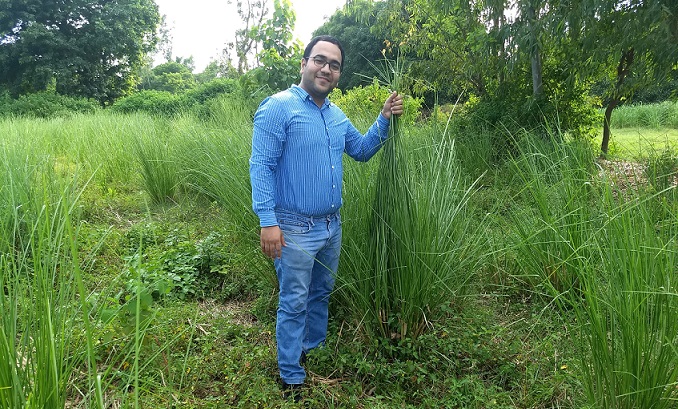
He gradually also set up a distillation plant to extract essential oils from these crops. The essential oils extracted are used in perfumes, pharmaceuticals, food and flavouring, cleaning, cosmetics and even bio-pesticides.
Having started his agricultural practice on a family-owned four-acre farm, over the years Sameer added more land under cultivation by taking it on lease.
Now, he grows lemongrass on fifteen acres and vetiver on ten, for a total of 25 acres.
From every acre of lemongrass cultivation, the farmer is earning anywhere between Rs 1 Lakh to Rs. 1.5 Lakh annually. While in the case of vetiver, the annual income per acre is Rs. 1.5 to Rs. 2 Lakh!
Moreover, having fabricated and set up his own distillation plant on the premises of the Chadha Aroma Farms, Sameer also offers his expertise in setting up distillation plants for others.
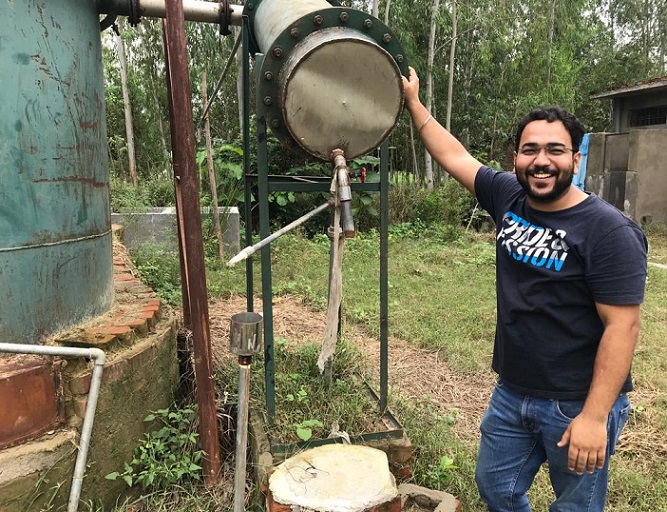
In conversation with The Better India (TBI), the farmer shares his journey, his challenges and how he has proven that agriculture can indeed be profitable.
How it all began
It was never a long-term plan for Sameer to venture into farming full-time. In fact, just after he passed out of school in 2010, he got heavily involved in the family business of educational institutions. He passed out with a Bachelor’s degree in commerce from the Lucknow University in 2013 while also looking after business development for his family venture.
But interest in nature and plants is something he developed over the years.
“My parents had bought a four-acre farmland about 35 km from home and wanted to grow our own food. I only decided to use that land for commercial agriculture in 2015. We were growing different kinds of seasonal vegetables but the rates in the market weren’t good. Also, the cost of transportation was high and they were perishable in nature,” explains Sameer.
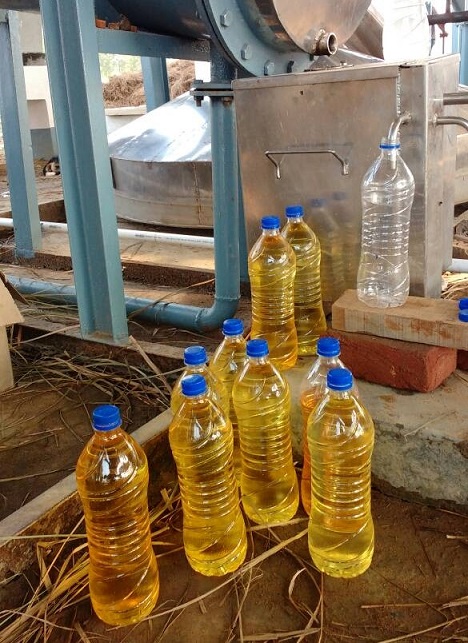
Thereafter, he started growing Shatavari (a species of asparagus) which at that time had high value in the health food and natural medicine sector. Although he made profits initially, owing to the unstable nature of the market for this particular crop, he wasn’t able to make any long term gains.
This is what pushed Sameer to explore alternatives that could make his agricultural practice profitable with a minimal investment in management and transportation.
“I picked lemongrass as it was a perennial plant and when it comes to extracting the oils, you only need to use the leaves. Once the leaves are harvested 5 inches above the ground, the plant continues to grow. This plant has the capacity to grow and provide essential oils up to seven or eight years,” informs Sameer.
Lemongrass is also harvested every two to three months, so can be harvested four to six times in a year.
In the case of vetiver, the essential oils are derived from the roots and not the leaves. So, this crop needs to be replanted again. The crop is harvested after a period of 11 months to a year. The leaves, however, do not go to waste and Sameer shares that it is used in his farm in different ways.
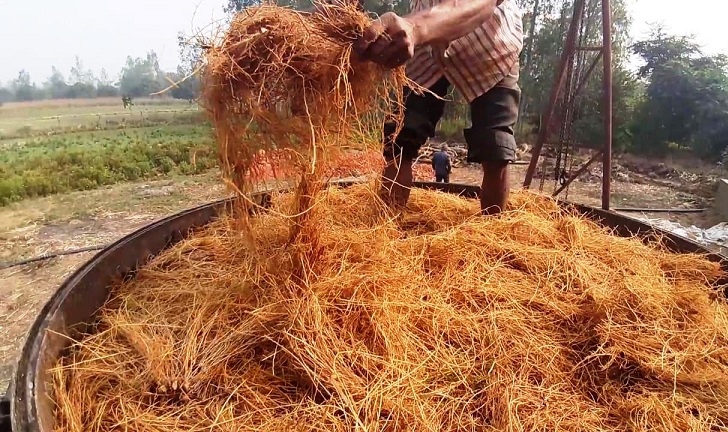
“After we separate the roots from the plant, the leaves of vetiver is perfect to be used as green fodder for cattle. We also use it for mulching in our agricultural practice while also using it to make manure and vermicompost,” informs Sameer.
However, both lemongrass and vetiver can only be grown in areas where there is adequate water for irrigation – which is the only limiting factor.
In a bid to keep the process chemical-free, Sameer nourishes his plants with fermented cow manure (which is bustling with healthy microbial activity), fresh and dried cow manure and vermicompost.
Making the essential oils
One of the important features of Sameer’s agricultural practice is the distillation plant. When Sameer started looking up on distillation plants, he found that people who were setting it up were charging a lot.
To counter this, he himself read up on the different components and planned out a blueprint to get one fabricated.
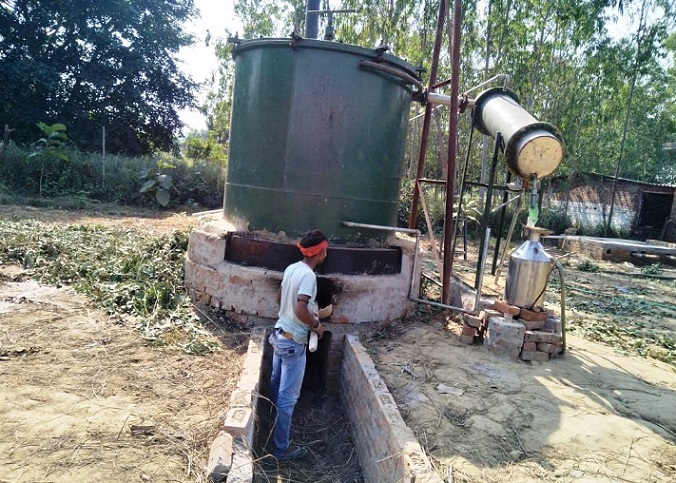
“I read up a lot on each process and the materials required. I looked at how it is made and what the possible glitches can be and how I must ensure to avoid them. It is important to have a good distillation plant so that essential oils are not wasted in the process. Now, we have a plant with a 1000 kg capacity and with each batch of distillation, we get about six to seven litres of oil,” says Sameer who also offers his expertise in distillation by making blueprints for others and even fabricating the units for those who want to have their own set up.
The distillation plant comprises a vessel in which there are about six to eight inches of water. On top of that, there is a wire mesh where the crop parts used for extracting the essential oil are placed. There is a furnace below the vessel and once the fire has been lit, the vessel is closed with the crop inside.
Within an hour, steam generates and passes through a pipe into a condenser. Once the steam has condensed, the liquid is collected in a vessel and the essential oil floats above a layer of water, because of which it can be easily scooped up. This entire process is known as hydro-distillation.
The essential oils extracted at Sameer’s farm are pure and of top quality which is why a lot of customers across different industries buy from him.
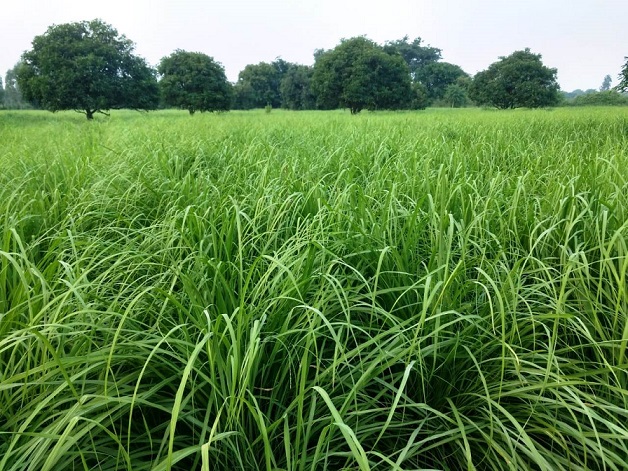
Agra based entrepreneur Muninder Yadav was first introduced to Sameer at a farming event in Lucknow in 2018. The owner of Yathaavat Aromatics, a perfume company, he would often visit these kinds of farming events to meet with possible vendors who could supply him with good quality essential oils necessary to make his perfumes.
Now, in a month, he sources close to 50 to 60 kg of essential oils from Sameer.
“The use of essential oils provides a natural fragrance to perfumes. While lemongrass has a nice citral content, vetiver essential oils form a good base for perfumes as they are capable of retaining any kind of fragrance naturally (despite having no smell of its own). I like the fact that the quality of his oils is really good and he knows how to extract and store it properly,” shares the 28-year-old entrepreneur.
In terms of transportation, Sameer shares that logistics is something that he’s been able to manage with ease because he can easily transport the oils using a car, driving it himself. This has further helped him minimise costs. Moreover, any farmer who wishes to grow lemongrass or vetiver, Sameer is also selling saplings so that they can get started.
Tiding over obstacles and looking ahead
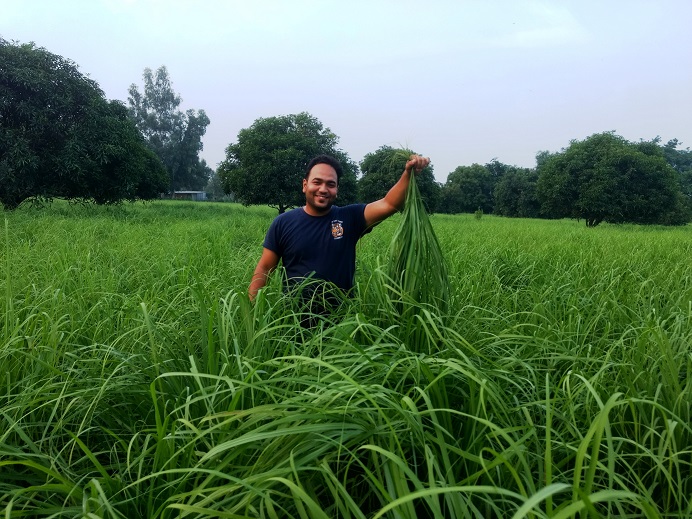
Regardless of his successful and profitable agricultural practice and essential oil business, there are still a few challenges that Sameer faces.
He shares that the initial cost of investment in getting the land and setting up the distillation plant can be really expensive. But he quickly adds that the saving grace is the fact that over time, the cost of operations goes down.
“The other challenge is that there is very little technical know-how on how to commercially grow these crops or even set up the distillation plants. For example, if there is a delay in harvesting the crop and it is over-mature, the oil obtained from extraction is very less. These kinds of small details and technical knowledge is important to have a successful agricultural practice,” he emphasizes.
To address this gap in knowledge, Sameer doing his own bit in training other interested individuals. On Chadha Aroma Farms, he provides his technical knowledge and training (how to grow the crops and distill the essential oils) to a group of 20 farmers at a time. He also disseminates education by conducting webinars.
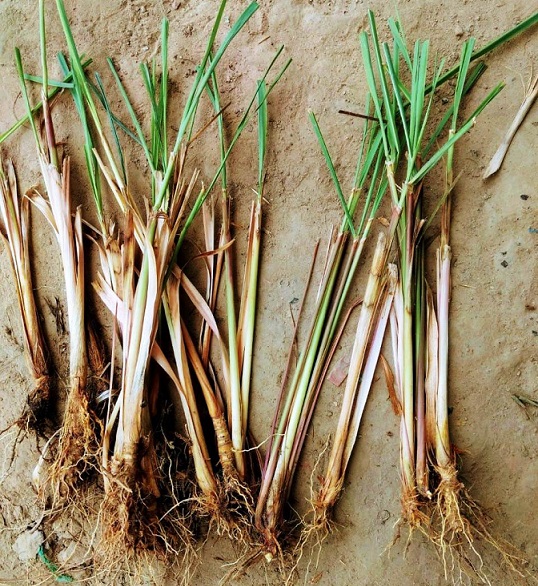
There are also many new exciting things on the horizon for Sameer. He shares that he would soon brand his essential oils so that it can be retailed directly to customers who want to buy it. Sameer also adds that he wants to continue providing different kinds of workshops to farmers.
“Most often, what we see is that farmers grow conventional crops. But they also need to know about profitable crops that are also easy to maintain and can be grown free of chemicals. In my own capacity, I want to share my story and knowledge with other farmers so that they too can lead a prosperous life,” he says signing off.
You can get in touch with Sameer by emailing him on [email protected] or call him on 7607074833. If you wish to seek any kind of training, sign up for that by clicking on this link and filling up the form.
(Edited by Vinayak Hegde)
Like this story? Or have something to share?
Write to us: [email protected]
Connect with us on Facebook and Twitter.
If you found our stories insightful, informative, or even just enjoyable, we invite you to consider making a voluntary payment to support the work we do at The Better India. Your contribution helps us continue producing quality content that educates, inspires, and drives positive change.
Choose one of the payment options below for your contribution-
By paying for the stories you value, you directly contribute to sustaining our efforts focused on making a difference in the world. Together, let's ensure that impactful stories continue to be told and shared, enriching lives and communities alike.
Thank you for your support. Here are some frequently asked questions you might find helpful to know why you are contributing?


This story made me
-
97
-
121
-
89
-
167




